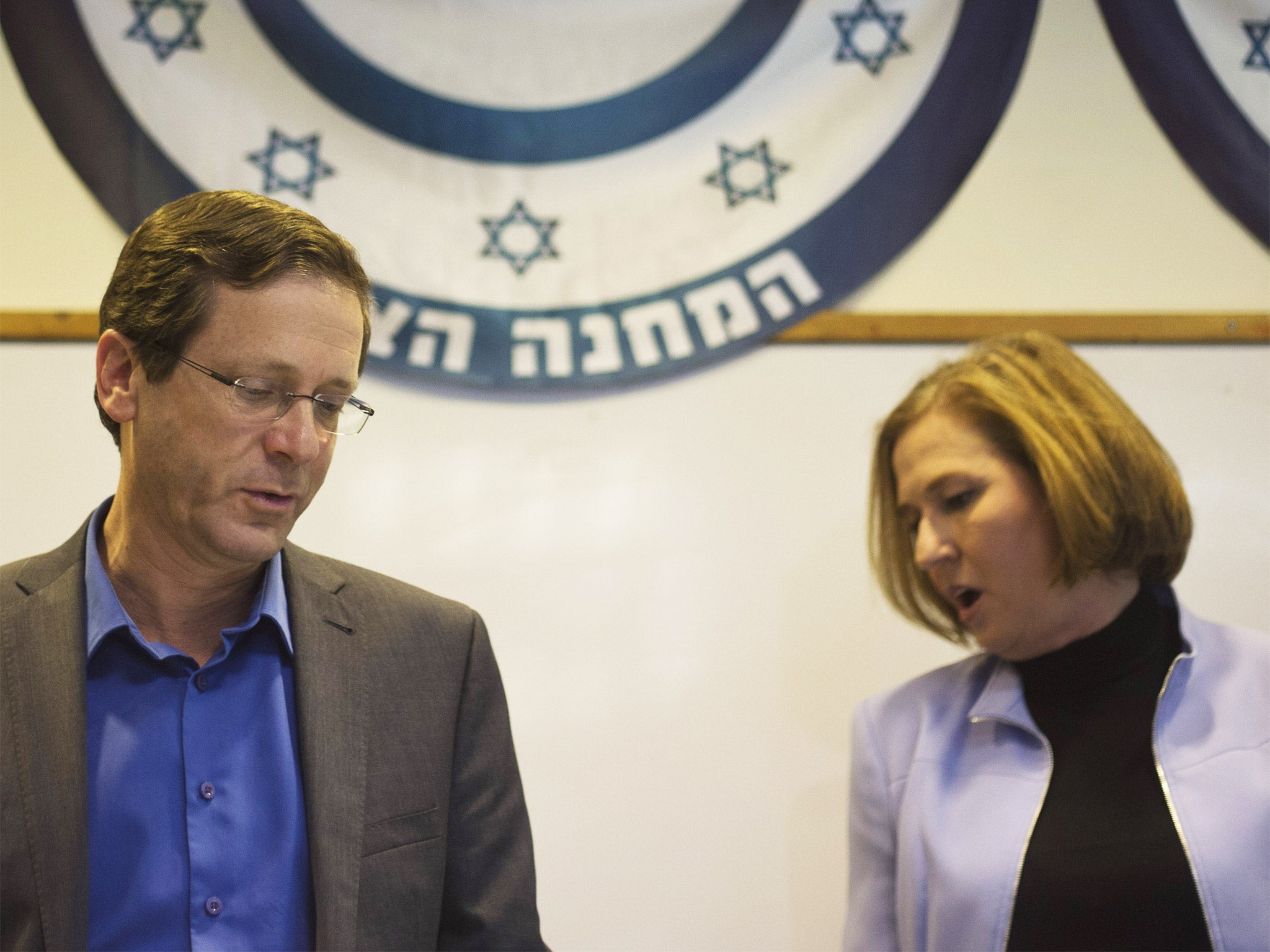Israel election: Palestinian hopes of statehood fade as Benjamin Netanyahu seeks to form coalition after victory
Likud's electoral success came after it dropped support for two-state solution

Your support helps us to tell the story
From reproductive rights to climate change to Big Tech, The Independent is on the ground when the story is developing. Whether it's investigating the financials of Elon Musk's pro-Trump PAC or producing our latest documentary, 'The A Word', which shines a light on the American women fighting for reproductive rights, we know how important it is to parse out the facts from the messaging.
At such a critical moment in US history, we need reporters on the ground. Your donation allows us to keep sending journalists to speak to both sides of the story.
The Independent is trusted by Americans across the entire political spectrum. And unlike many other quality news outlets, we choose not to lock Americans out of our reporting and analysis with paywalls. We believe quality journalism should be available to everyone, paid for by those who can afford it.
Your support makes all the difference.Palestinian leaders appealed to the international community for help in keeping their hopes of statehood alive after the Israeli Prime Minister Benjamin Netanyahu won a clear election victory and pledged to form a new coalition government quickly.
Mr Netanyahu’s unexpected success at the polls on Tuesday, which resulted in his Likud party winning six more seats than its main challengers, the Zionist Union, seemed likely to push Israelis and Palestinians further than ever from a resolution of their conflict.
The victory came two days after the Prime Minister, in a successful gambit to win right-wing votes, abandoned Israel’s stated commitment to negotiate the emergence of a Palestinian state in currently occupied territory – the so-called “two-state solution” – and opposed the creation of an independent Palestine.
The Palestinians’ senior negotiator, Saeb Erekat, said: “Israel has voted for the burying of the peace process, against the two-state choice and for the continuation of occupation and settlement.”
Efforts to isolate Israel diplomatically and pursue war crimes charges against it would intensify, Mr Erekat told the Voice of Palestine radio station, and the Palestinian Authority would end its security forces’ co-operation with those of Israel.
In a separate statement, he added: “Now, more than ever, the international community must act. It must rally behind Palestinian efforts to internationalise our struggle for dignity and freedom through the International Criminal Court, and other peaceful means.”
The White House said that the US, Israel’s most important ally, would re-evaluate the best way to bring about a two-state resolution to the Israeli-Palestinian conflict in the light of Mr Netanyahu’s win. The White House spokesman Josh Earnest said President Barack Obama still believed the best solution was for Palestinians to have their own independent state.
He said the US Secretary of State John Kerry had already congratulated Mr Netanyahu by telephone, and Mr Obama would also do so soon.
With nearly all the votes counted, Likud had garnered 30 Knesset seats, compared to 24 for the centre-left Zionist Union. This was an astonishing achievement since the last pre-election opinion polls predicted that Likud would lose by four seats. The Joint List, an alliance of four Arab parties, also did better than expected, winning 14 seats and becoming the third-largest party in the Knesset.
A Likud statement said the intention now is to form a new government within two to three weeks. The results pave the way for Mr Netanyahu to patch together a majority of up to 67 of the Knesset’s 120 seats, including MPs from rightist and religious parties. On Tuesday he had initial conversations with six faction leaders, including Moshe Kahlon, a former Likud Finance Minister whose Kulanu party gained 10 seats, prior to what could be a month of talks.
“The reality doesn’t take a time out,” Mr Netanyahu said. “The citizens of Israel expect us to quickly form a leadership that will work for them and so I will do.”

Mr Netanyahu thanked those who elected him. “I deeply value the decision by Israeli citizens to choose me and my colleagues against major forces,” he said, alluding to his claims during the election that he was the victim of an international effort to oust him.
The Likud leader waged his campaign by highlighting Iranian and other perceived threats to Israel’s security and ruling out territorial compromises with the Palestinians. Mr Netanyahu pledged to boost the building of Israeli settlements in the West Bank – illegal under international law – and in East Jerusalem.
Leaders of the defeated Zionist Union, Isaac Herzog and Tzipi Livni, vowed to continue opposing the government. “The dream government of Netanyahu is the nightmare government of Israel,” said Ms Livni.
Ghassan Khatib, vice president of Birzeit University in the West Bank, said the idea of an independent Palestine might not survive a further four years of Mr Netanyahu. “If he is given a free hand this will bury the practical possibility of two states and, as a by-product, bury the Palestinian moderate leadership,” he said.
Join our commenting forum
Join thought-provoking conversations, follow other Independent readers and see their replies
Comments